Karel Höger
出生 : 1909-06-17, Brünn, Moravia, Austria-Hungary [now Brno, Czech Republic]
死亡 : 1977-05-04

komentář (voice)
A musical starring Jiří Menzel (whose part is sung by Achilles Michailidis) as a math and physics teacher employing innovative teaching methods.

František Havránek (segment "Téma: Láska")

Narrator (voice)

Narrator (voice)
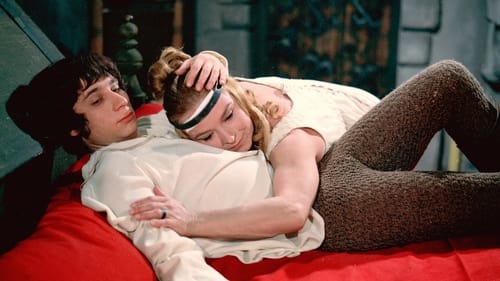
Narrator (voice)

Narrator (voice)

Narrator (voice)

František Kalina

kníže Lygorskij
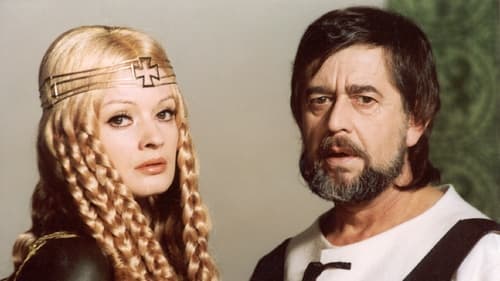
Arnošt z Pardubic
No Woman is allowed into Karlstejn Castle! Yet the enamoured Daniele Kolářová and the equally enamoured Jana Brejchová manage to spend one night in disguise in the Castle despite the strict royal ban.

Dr. Dering
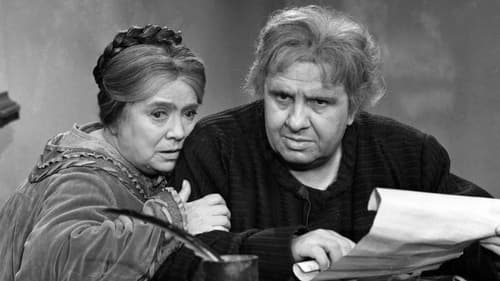
Narrator (voice) (uncredited)

Narrator (voice)

Narrator (voice)
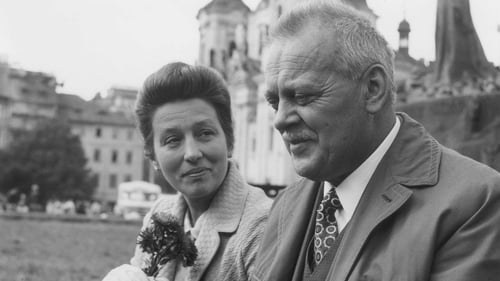
Karel Pluhař

Commentary (voice) (uncredited)

Narrator (voice)

řidič Folta zvaný Doktor

This historical film by Hynek Bočan touches upon the indecisiveness of the Czech nation, ready to bend the backbone in face of foreign rule. Situating the story at the close of the Thirty Year War enabled the depiction of the misery of the people that affects even an impoverished aristocratic milieu. Rudolf Hrušínský appears here in the role of an indecisive knight, persuaded for a long time and in vain to join the anti-Habsburg movement. The story does not only captivate through the depiction of manifold human characters, intrigues and sycophancy, but also through the circumstances ruling over the devastated farmstead, sunk in mud and crudeness. One of the best films with an updating tendency has come into being here, rightly being named along the such greats as Kladivo na čarodějnice (Witches' Hammer).

It is 5 May 1945 and the uprising against the hated German occupiers has broken out in Prague. The Czech guards open the gate of the Pankrác prison to allow the prisoners to escape en masse. Many of them are shot dead by the German guards but young Ruda (Jaromír Hanzlík) manages to run away. He is taken care of by one of the Prague fighters, concierge Kytka. Kytka hides him in the flat of the house's owner where only the young maid Karla (Jana Brejchová) is left, ordering her to take care of Ruda.


At the year 1946, the time of the Nuremberg Process. One of the main actors of the Second World War, who reportedly committed suicide, Adolf Hitler is, however, missing. The Czech doctor Herman (Karel Höger) is kidnapped from Prague and driven to the sanatorium of Professor Rolf Harting (Jirí Vrstála). The sanatorium is a disguised military stronghold, most probably occupied by a Nazi garrison, with prison cells and an execution chamber in the basement. At night, Herman is taken to a patient in whom he, to his horror, recognizes Hitler (Fritz Diez).
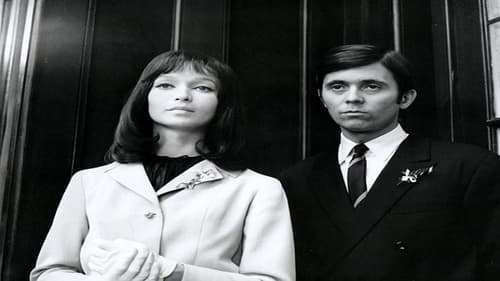
pan Gottlob
A beautiful, underachieving, 18-year-old orphan considers various suitors, ponders philosophy, and takes a young girl under her wing.

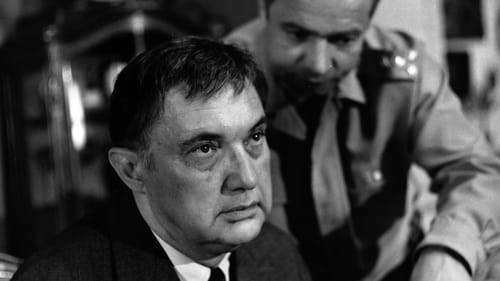
Dr. Laburda
At the Ronov castle, the archive-keeper professor Nykl (Milos Nedbal) is searching for the lost painting The Naked Shepherdess by the famous Fragonard. Nykl is just about to disassemble the mantelpiece in the knight's hall, convinced that the painting must be hidden somewhere inside. His efforts, however, meet the strong disapproval of the castle manager, Anna Juzová (Jirina Petrovická), who knows very well where The Naked Shepherdess is. She wants to get hold of the painting herself, to emigrate and smuggle it along. In fact, Anna deals with forgeries of the most distinguished old masters, selling them abroad. The copies are made for her by the painter and restorer Maudr (Martin Ruzek) and the certificates of authenticity are issued by Anna's companion - expert Laburda (Karel Höger). One day, Anna is found murdered in front of the castle's fireplace.

Narrator (voice)
A modern fairy-tale about Otýlie, a girl who each time she writes something gets all dirty from the ink. One day her teacher wants to clean her with an eradicator and otylie disappears. She is happy to be invisible but due to blots she becomes an ordinary girl again.
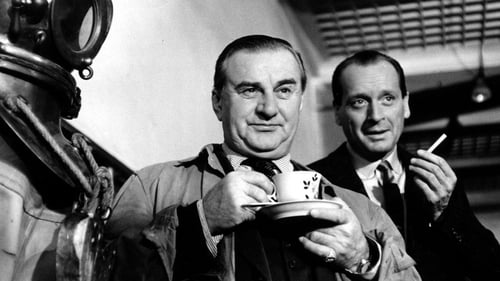
major VB Miloš Tůma
Miss Nováková reports to Major Tuma (Karel Höger) from the police about the disappearance of her roommate, the model Zuzana. Shortly afterwards, a film director named Konrád (Otomar Krejca) asks Tuma to cooperate on a new cinéma-vérité film describing the story of Zuzana's disappearance.

A man returns to his native village in search of renewed faith and his old girlfriend. But she, now a middleaged woman, does not recognise him and he goes home, more disillusioned than ever.

Narrator (voice)
Fati Farari, a black man from Africa, is completing his studies in classical piano at the Music Academy of Prague. It's the day before his first solo concert, where he is going to play Bach. While he strolls around the city he is thinking, not so much about the concert as about himself, both as a lonely foreigner and as a human being in cosmos. Here and there he encounters some racist comments, but mostly he just feels the weight of social exclusion because of his otherness, especially when it comes to women. On the morning of the day for his concert the embassy informs him that his whole family has perished. He feels totally broken, although he thinks that everyone holds some pain inside. His piano teacher, a professor at the Academy, looks him up, and tells him that he heard what has happened. The professor advises him to communicate his feelings that evening by using his Bach.

Narrator (voice)

Narrator (voice)

A movie built up of three stories about life in a small Slovak town. The Prosecutor: the district attorney is a jazz orchestra soloist at the same time and that is much disliked by the local provincial society. The Defender: is about a young doctor's relation to his patient, who is open about his reactionary opinions. The Judge: it is only after long years that the old judge realizes that his own marriage is in jeopardy.

During the Second World War, an old fortress is transformed into a detention camp for arrested allied generals who the Germans provide with every possible comfort. In the nearby garrison camp, however, hundreds of captured private soldiers try to survive hunger and cold.
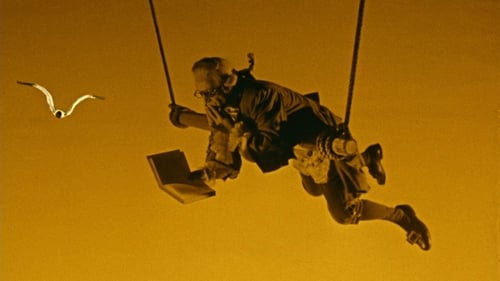
básník Cyrano z Bergeracu
The 20th century's first man lands on the moon and discovers - that Baron Munchausen has already beaten him to it, along with Cyrano and characters from Jules Verne's lunar-landing novel. The Baron spirits the young cosmonaut by horse-drawn ship back to an ancient "Earth", where they insult a sultan, rescue a princess, fall in love with the princess, and then as a trio have further experiences in a world of pastel colors, ornate dreamlike settings, and the inevitable angry disrupters of peacefulness and love.

Commentary (voice)

Commentary (voice)
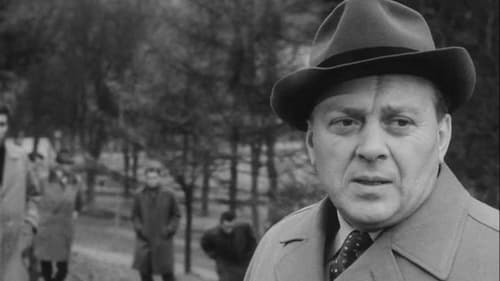
Kpt. Tůma
“A bored housewife, a husband who married her for show, and a stupid boy who is full of himself because he is dating a Swiss woman.” The words of Inspector Tůma sound like they’re from a European melodrama, but in fact they come from a Czechoslovak crime story. A pair of detectives, counterfeit medicine, the high-society setting of a Karlovy Vary hotel, and Oldřich Nový as the aging hotel manager Kraus.

Alfréd Morák
This lyrical comedy story takes place in two hot days in the small South Bohemian village. On the shore of a small pond, summer guests and local youth meet. As is typical of the works of Hrubín, it is a conflict of youth and age, life and death, represented by the medical student Zuzana and her beloved Jirka.

Father Novotný

Czechoslovakian cartoon version of Little Red Riding Hood. Here, Red Riding Hood's family finds a way to take care of the wolf.

Karel Stibor - father

Narrator (voice)

Commentary (voice)

Commentary (voice)

Narrator (voice)

kapitán VB Miloš Tůma
On an early Sunday evening, people of the small town are reading lottery results that are hung on a board. Young man Karel Antos is annoyed that his lottery-ticket missed the main prize, a car, by only one number. Karel is going to the pub to drink away his bad luck with his friend Jirka Broz. The old accountant auditor Zelinka drops a wallet. Karel picks it up and before he gives it back he notices the winning lottery-ticket in it. Both young men accompany the old drunk man. Karel steals the ticket and exchanges it with his own. Next day, Zelinka is found dead. Investigators, Captain Tuma and the Lieutenant Líbal, soon discover that this is a murder case covered up as an accident.

Jiří Štefl

Pastyřík
Czechoslovakian crime film

Narrator (voice)

Commentary (voice)
A documentary about the life of Jewish children forced to live in the Theresienstadt concentration camp.

Lawyer Frantisek Brych

Narrator (voice)
A puppet fairy tale about a disobedient train that did not just want to carry coal and drove to return to his work after a sad experience.

Alexandr Štěrba

Commentary (voice)
A short, humorous history of aviation based on Kamil Lhoták's book "Balloons, Wings, Propellers."
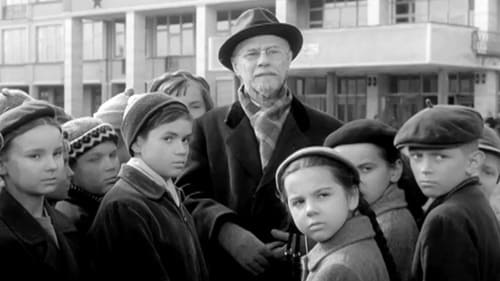
Jindrich Pelikán
A new teacher with high standards and a strong sense of duty replaces an easy grader. Once bad grades begin to pile up, a product of his predecessor's subservience to the system, the new teacher has to stand up for himself and his students.

MUDr. Mrázek

Commentary (voice)

head teacher Stolař
Five years old Johnny is going for his first journey with no parents.

Narrator (voice)
Puppet adaptation of Hans Christian Andersen's fairy tale.

Commentary (voice)

Commentary (voice)
Second half of the 19th century. In a small town in South Bohemia, fifth-former Jan Ratkin is living through the confusions of first love together with his classmates.

Engineer Otakar Racek

král Václav IV
The second part of the revolutionary Hussite trilogy takes place in the years 1419-1420.

Gregory

Bedřich Smetana
Venice Film Festival 1955

Narrator (voice)

Narrator (voice)

král Václav IV.
Jan Hus is a 1954 Czechoslovak film directed by Otakar Vávra. It is the first part of the "Hussite Revolutionary Trilogy", one of the most famous works of the Czechoslovak director, completed with Jan Žižka (1955) and Proti všem (Against All Odds, 1957).

Self

Josef Kučera

Commentary (voice)

Commentary (voice)
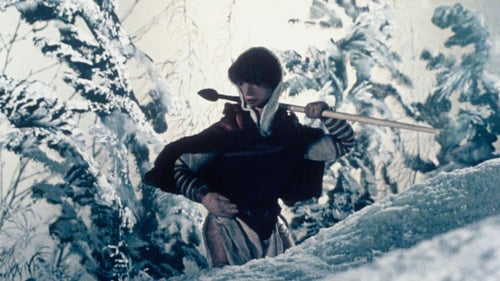
Narrator (voice)
A monumental piece of art bringing the heroes of the ancient Czech myths back to life. The picture consists of seven parts: Cech the Forefather, Bivoj, Libuse, Premysl, Girls War, Horymir, Lucka War.

"The Rally" is based on a communist writer Vaclav Řezáč's well-written novel of the same name

Early Days follows the early life of famous Czech writer Alois Jirásek. Jirásek had already developed his own view of the history of the Czech nation while he was at grammar school in Broumov. When he becomes the supply teach in Litomyšl, he has already written his first book and a number of poems. The local dignitaries await the arrival of the young writer in excited anticipation. Jirásek, however, is sickened by the empty patriotism from the depths of his soul and soon becomes disagreeable to the notables. The district sheriff tries to remove Jirásek from the school and drive him out of town. Unable to do this, the sheriff appoints a pro-Austrian headmaster who attempts to sabotage Jirásek. The students stand behind Jirásek , however, and discontent is not only felt in Litomyšl but throughout Bohemia.

Narrator (voice)

Mikoláš Aleš

Narrator (voice)

Commentary (voice)

Narrator (voice)

Narrator (voice)

Narrator (voice)

Commentary (voice)

Dr. Jiří Chvojka

Czechoslovak drama film about soldiers returning from World War II
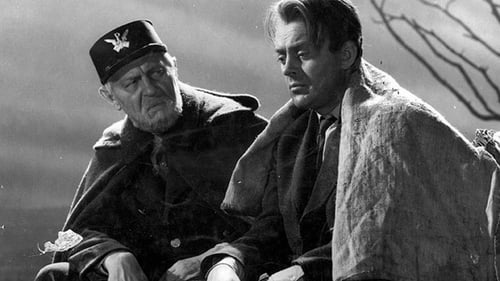
Prokop
Based on the novel by Karel Capek, the prominent Czech writer of the early 20th century who coined the word robot for his play R.U.R., the story revolves around a discovery of Krakatit - a powerful explosive - by Prokop, an experimental scientist who, following an accidental explosion in his lab, slips in and out of delirium. When he realises that, in a delirious period, he has given the formula for making Krakatit to one of his colleagues, he tries to find the man, who does not realize how dangerous a thing Krakatit is. In the process, he nearly gives his discovery away again to foreign interests, a group of anarchists, and even greater forces of darkness...

JUDr. Loukota

Saša Holberg / Arens

Pavel Čtrnáctý alias Hubert Malina

JUDr. Pavel Chvojka

Petr Tuzar

Robert Holan

Dr. Arnošt Zouplna

Antonín Jedlička

Záviš Herold

Self



























